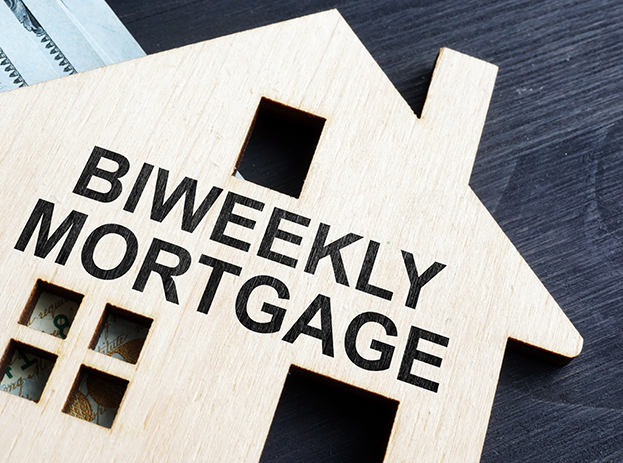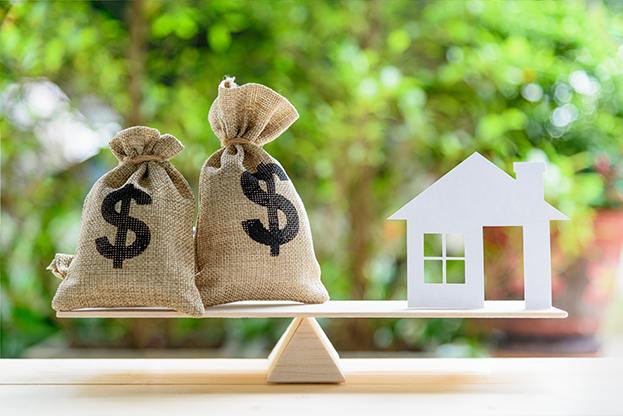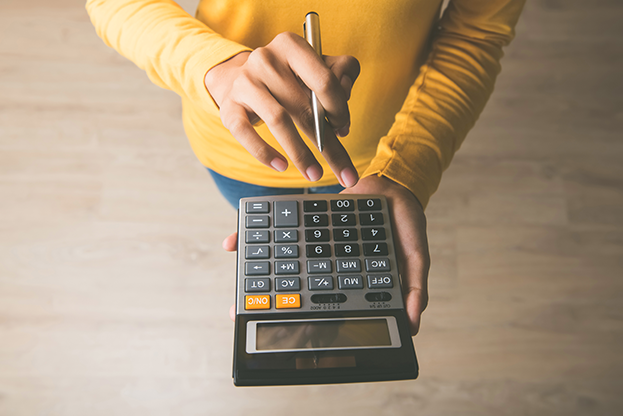Posted: October 31, 2024 by James Burns in Borrow, Money tips, Assiniboine Credit Union, mortgage, mortgage rates, mortgage with a credit union, mortgages
Should I pay my mortgage down faster?
Have you ever asked yourself, “Should I pay off my mortgage early?” The short answer is yes. While it may be tempting to stretch out the term of your mortgage to keep your payments down, it will cost you more in the long run.
At the same time, paying off your mortgage early shouldn’t come at the expense of other financial goals, like building an emergency fund or saving for retirement. Determining whether it’s a smart decision should start with examining your whole financial situation.
Why pay off your mortgage early?
Paying off your mortgage early frees up money. Without a regular mortgage payment, you’ll have funds available for other financial goals, whether that’s early retirement, buying a cabin or travelling.
At the same time, you’ll build equity in your home (which is the current value of your home minus your remaining mortgage balance). When the value of your home increases, so does your equity—which you can use to borrow for things like renovations, post-secondary education or other major expenses that come your way.
Understanding your amortization period
An amortization period is the length of time it takes to pay off your mortgage. For a mortgage insured by Canada Mortgage and Housing Corporation (CMHC), the maximum amortization period is 25 years (or 30 years for first-time homebuyers purchasing). For a non-insured mortgage, the maximum amortization period is 35 years.
You can choose any amortization period within those limits, so long as it’s offered by your mortgage lender. A longer amortization will result in lower monthly or bi-weekly payments, but the longer it takes to pay off your mortgage, the more you’ll end up paying in interest. You’ll also be paying down the principal—and building your equity—much more slowly.
And that, according to the Financial Consumer Agency of Canada, can add up to thousands or even tens of thousands of dollars in interest over the life of your loan. Therefore, paying off your mortgage early is a smart financial choice.
You don’t have to live on a shoestring budget to increase your mortgage payments. Here are a few simple ways you can pay off your mortgage faster:
1. Make accelerated bi-weekly payments
Instead of paying your mortgage every month, split your monthly mortgage amount in half and start paying that amount every two weeks. This is referred to as “accelerated” bi-weekly payments. You end up making a total of 26 payments per year—or two extra payments—in a 52-week period.

Basically, you’d be making one extra monthly payment toward your mortgage each year, without even noticing it. That 13th-month payment allows you to pay off your mortgage faster and lower the amount of interest you pay over time.
This is different from a “regular” bi-weekly payment, where the monthly mortgage payment is multiplied by 12 months and then divided by 26 to come up with a “regular” bi-weekly payment.

That means you’re putting one extra monthly payment toward your mortgage each year, without even noticing it. That 13th-month payment is called the ‘accelerant,’ because it allows you to pay off your mortgage faster and lower the amount of interest you pay.
This is different than a “regular” bi-weekly payment, where the monthly mortgage payment is multiplied by 12 months (to get total annual payment) and then divided by 26 to come up with “regular” bi-weekly payment.
Example:
- $1000 per month ÷ 2
= $500 x 26 “accelerated” bi-weekly payments
= $13,000 per year - $1,000 per month x 12 ÷ 26
= $461.54 “regular” bi-weekly payment
= $12,000 per year
2. Round up your payments
Whether you’re paying bi-weekly or monthly, round up your payments—so instead of paying $461.50 every two weeks (on the balance remaining on your mortgage), round it up to $500. You’ll barely notice the extra $38.50, but that small amount will add up over time, shave years off the amortization schedule and save you thousands in interest.
This extra portion of the mortgage payment can be started, stopped, re-started, increased or decreased. This gives you great flexibility if your financial affairs and your cash flow change over time.
Note that the round-up amount is considered a principal payment (like the $38.50 in our example). It will go towards the maximum amount that you are allowed to prepay on your mortgage every year without incurring any prepayment penalties.
3. Make an annual lump-sum payment
Most closed mortgages allow you to make at least one extra lump-sum mortgage payment annually, without penalty. And many financial institutions allow you to make multiple lump-sum payments throughout the year—as long as you don’t exceed the maximum amount allowed in your mortgage agreement. This is called a pre-payment privilege.

The bonus? It’s applied directly to your principal, which will help with paying off a mortgage early and saving on interest.
So where will you get that extra money? One option is to use your tax refund as your annual lump-sum payment. You may even want to consider increasing your RRSP contributions and putting your tax refund directly toward the principal of your mortgage. Typically, you’re allowed to make a lump-sum payment—without penalty— of between 10 and 20% of the original or last-renewed balance of your mortgage.
If you’re unsure how much the maximum amount allowed is, ask your mortgage specialist/trusted financial advisor.
4. Re-examine your budget
If your goal is to pay your mortgage faster, connect with your trusted financial advisor to review your budget, complete a net worth statement and determine what could be shifted towards extra mortgage payments. Do you need five different streaming services? Maybe you could consolidate that to just one or two. Do you need a latte on your way to work every morning? Maybe you could cut that down to once a week and make coffee at home the rest of the time.
These small savings can add up over time and can be directed towards your mortgage payments instead.
5. Use found money
If you don’t have room in your household budget to increase your payments or make a lump-sum payment, consider using ‘found’ money instead. That could be anything from a bonus at work to birthday money or an inheritance. Since it’s ‘found,’ you weren’t expecting it and it won’t impact your budget.

While you may be tempted to spend found money on something more exciting, such as a vacation, consider that about half the total interest of a typical mortgage accumulates in the first 10 years (because the principal is much higher). The faster you can reduce your loan, the better chance you’ll have of paying off a mortgage early.
6. Never lower your payments
When it comes time to renew, most people want to negotiate the interest rate. If you’re able to get a lower rate than you had before, then you’ll be in a position to decrease your bi-weekly or monthly payments.
However, if your goal is to pay off the mortgage as fast as possible, don’t decrease your mortgage payment. Instead, keep on paying the same amount you were paying before. You’re already used to it, so it won’t affect your budget, yet you’ll be able to pay off your mortgage earlier.
7. Refinance a shorter-term mortgage
A straightforward way to reduce the amount of time it takes to repay your loan is to shorten the term of your mortgage. When it comes time to renew, for example, you could refinance to a 15-year mortgage instead of a 20-year mortgage. This would, of course, increase your payments, but you’ll save a whopping amount on interest — and pay off your mortgage five years sooner.
8. Investigate fixed versus variable
When it comes to choosing a fixed-rate or variable-rate mortgage, it’s not a clear-cut decision. With a variable rate, if interest rates go down, more of your money goes toward your principal — so you’d pay off your mortgage slightly faster. Inversely, if rates go up, it would take slightly longer to pay it off. With a fixed rate, you save if rates continue to rise. Since no one can accurately predict the future, it depends on how much risk you’re willing to take on.

To choose a fixed rate or a variable rate…that is the question!
This is a big decision and should involve meeting with your trusted financial advisor.
When is paying off a mortgage early the wrong choice?
Paying down your mortgage early isn’t the best decision for everyone. If you have high credit card debt, no retirement savings or no emergency funds, you may be better off attending to those financial concerns first.

You might also have other financial goals, such as saving for a wedding or family vacation, helping elderly parents pay for the costs of long-term care or bumping up your retirement savings. (Many financial planners recommend setting aside 15% of your income for retirement). If you have kids, you may want to set aside money for their post-secondary education.
If you run a home-based business, a portion of your mortgage interest is tax deductible, so you may not be inclined to pay it off faster. The same can be said of a property that’s both a home and investment property. If you’re unsure what to do, discuss this with your financial advisor to get advice for your specific situation.
Consider your options
It’s easy to ‘set it and forget it’ when it comes to your mortgage, but paying attention to interest rates will give you a better sense of your options going forward. Take some time to investigate those options, and use tools like our ACU mortgage calculator to get an idea of how much you can afford to borrow, and to calculate the effects of things like changing your payment frequency, topping up, and making lump-sum payments.
Paying off a mortgage early is achievable if you follow even a couple of these strategies—and you can do it without having to dramatically change your lifestyle or household budget.
Make an appointment with an ACU financial advisor today to get help mapping out your retirement plan.
Up Next
Community stories
Read more ›
Celebrating the 10th anniversary of student-run credit union
Just over 10 years ago, a survey circulated at Winnipeg’s Technical Vocational High School. The results showed that students at the school, commonly known as Tec Voc, felt short-changed—they were…
Borrow, Business growth, Community stories
Read more ›
Kilter Brewing Co. serves up craft beer and community connection in St. Boniface
Deep in the heart of St. Boniface, Kilter Brewing Company is a hidden treasure—an oasis for Winnipeggers to escape their day-to-day routines, enjoy craft beer and connect with their community….
Borrow, General, Money tips
Read more ›
How to use a mortgage calculator to budget better
Learn how to use ACU’s mortgage calculator to figure out how much mortgage you can afford, and what budget you should set before you start house hunting. A mortgage lender…





